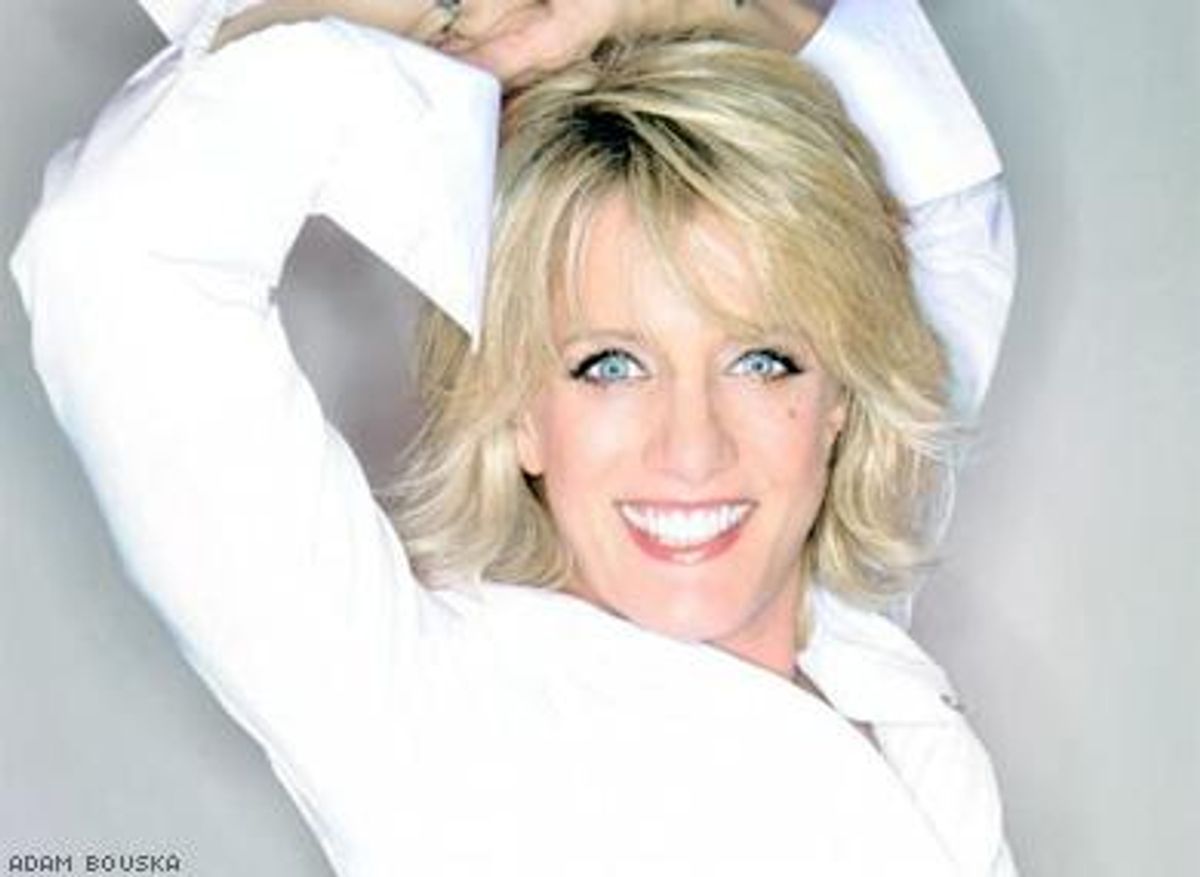Comedy
Suzanne Westenhoefer: On a Dare to Be Different
Suzanne Westenhoefer: On a Dare to Be Different

By continuing to use our site, you agree to our Private Policy and Terms of Use.
Suzanne Westenhoefer: On a Dare to Be Different
Suzanne Westenhoefer: On a Dare to Be Different

Suzanne Westenhoefer can claim a lot of firsts for lesbians in comedy. She broke ground on television as an openly gay comic, for example, with her award-winning HBO comedy special in the early '90s. Westenhoefer spoke with The Advocate about being one of
the first out gay comedians, how she became involved in the LGBT
movement in college, and how her comedy career began as a dare.
The Advocate: Can you talk about your Semi-Sweet tour?
Suzanne Westenhoefer: The truth is, I don't really stop touring. Comedians don't stop working, ever. About every year or so, my material changes and my life changes, so I give it a new name. My tour reflects whatever is going on in my life at the time. The reason we decided to call it Semi-Sweet was because I have a lot of negative things happening and a lot of good things, and I'm talking about both of them, so we thought that was clever. People come up to me afterwards; some of the topics I discuss are not pleasant, but they're things that everyone is going through or have gone through, so people have been really super-responsive about it.
Do you prepare a set specifically for each show or do you draw from the vibe or audience interaction?
I draw on how the audience is responding to what I am talking about and whatever is going on in my life. I know kind of what I am going to say, but if it changes or a weird day happens or something is going on with the audience, it will change according to that.
You perform heavily for gay cruises; is that experience different than performing for straight audiences?
I don't change what I'm talking about because it's personal and it's my life, so I can't really change it. The biggest difference is that if I have an all-straight audience, I can make fun of straight people more and they kind of dig it. It's funny and it's stupid. Whereas, if it's an all-gay audience, people don't like it when I make fun of straight people as much. When I'm in a comedy club with a straight audience I can be so mean and silly and mock them, and they kind of love it!
What does it mean to be an LGBT performer? Do you seek to inspire gay youth who are looking to enter the entertainment industry?
I hope so. I could have gone and started stand-up in 1990 when I did and been in the closet and probably have had my own damn television show by now. It definitely had some negative effects on my career. I sure hope the fact that I chose to be out changes it for the next group of queer comics, so they don't have to get famous first and then come out. They can start right out queer and still end up with their own sitcom and get in movies. I absolutely hope that happens.